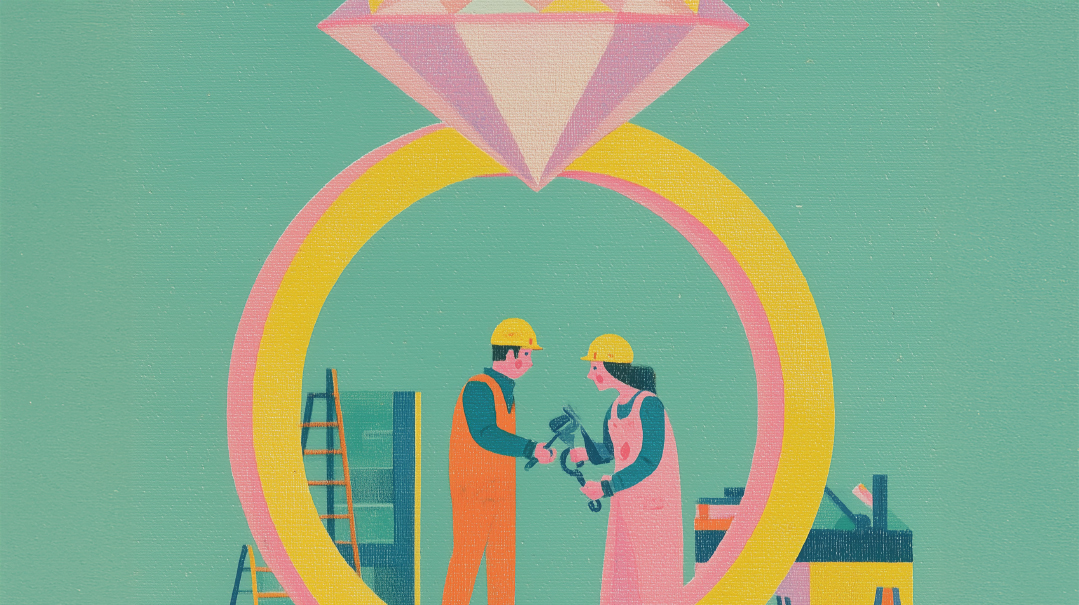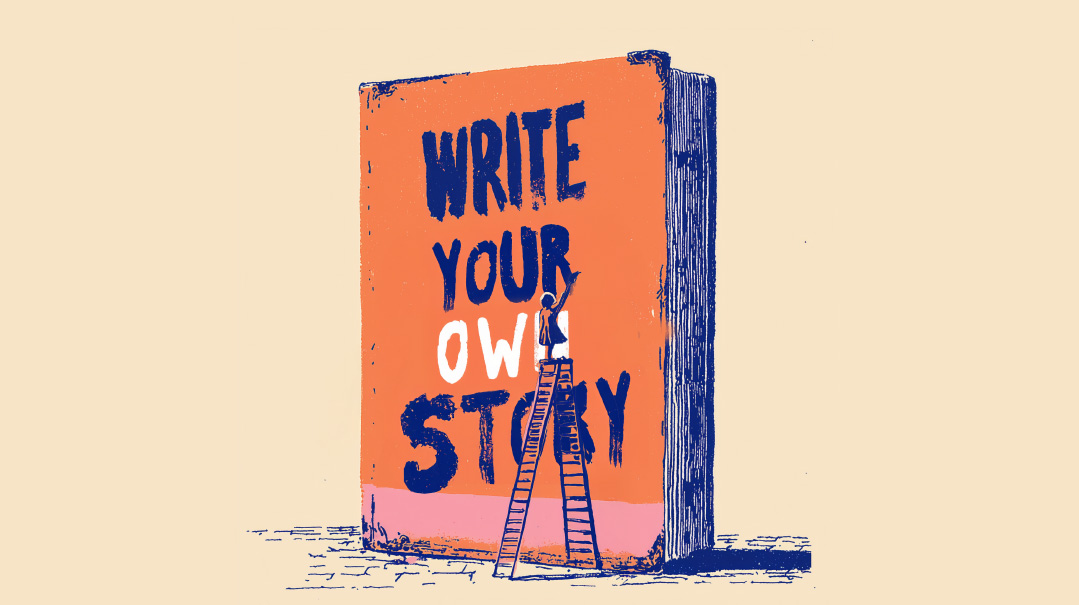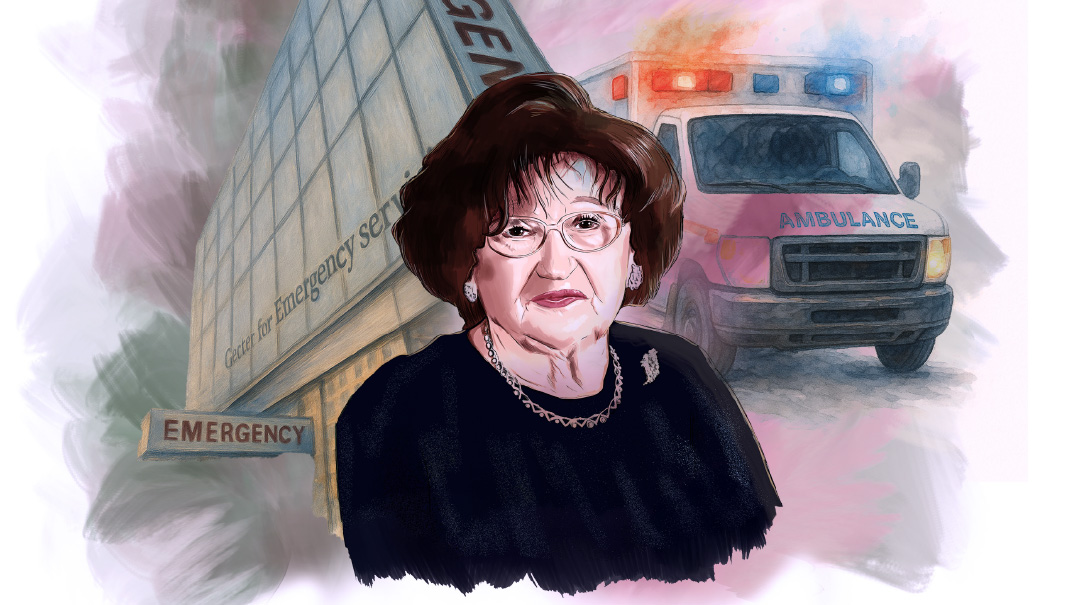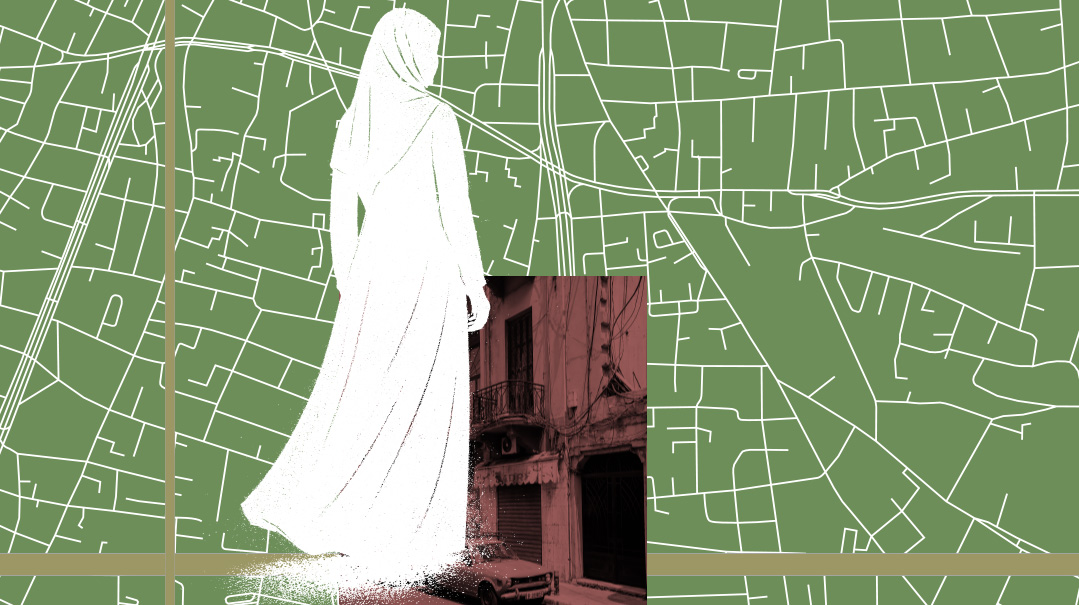How We Weathered the Storm
| February 3, 2021A medical crisis upended their lives — three women share how they made it through

Dina
The Crisis
Five years ago, one of my children was born prematurely, at a very low birth weight. He stayed in the NICU for a few months. We put everything on hold, including my job as an occupational therapist, to be in the hospital full-time. Baruch Hashem, we made it through the first year, and today he’s a happy, healthy little boy.
Managing the Crisis
In the NICU, they’re intentionally not reassuring. No one says, “Don’t worry, everything will be fine,” because they aren’t going to tell you something they can’t promise. The message is: Whatever it is, you can do this.
Watching other parents in the ICU keep it together was a big source of chizuk. It reminded me that even though something may seem beyond what I can handle, my job was to show up, no matter what. I needed to accept that this is the situation, and I can’t turn away from it. Now, when my own clients are struggling with a challenge and they ask: “How am I growing from this?” I tell them it’s about being there, and it’s not your concern how you’ll grow. The growth shows when you look back.
Managing the Home
Right after the birth, Bubby flew in for two weeks, which was a real treat for the family. More than being a help with chores, having Bubby around meant that my kids could get some extra attention.
I was post-surgery, so I couldn’t bend or lift for a while, and we simply dealt with it. Even though I wasn’t getting up in the middle of the night for a crying baby, I was getting up to pump, which meant I still had all the exhaustion of a new mother.
What did everyone eat? I don’t know... they just managed. We ate a lot of noodles. And a lot of pizza. And used lots of disposables.
Laundry and cleaning just kind of went to pot. I’m sure clothing got ruined along the way. My kids probably went to school with dirty socks, but I wasn’t aware of it because I wasn’t home in the mornings. What was important got done and what didn’t get done wasn’t important.
Managing the Family
At first it was a real disappointment for my kids, because we’d been planning a trip abroad for the summer. They were counting down the days and then… we didn’t go.
We were careful not to minimize their struggle, to give them space, and say: “It’s upsetting and this is what Hashem sent us.” For me, trusting them to be able to deal with this was its own nisayon. It made me calmer to remember that it wasn’t my job to make it better for them or to make it up to them, but rather to hear their feelings and help them hold their pain.
We tried to make sure that our kids felt connected to the process, involving them in whatever developmentally appropriate way we could. They made drawings to put on the incubator, and we took pictures to show them. This helped everyone accept that things were a mess at home. They didn’t always have us around or the food they preferred, but they knew it wasn’t because we didn’t care — or cared about the baby more than them. They understood that the baby needed certain things that only Abba and Ima could give him.
One day, when I was walking with my five-year-old, I said, “It must be hard for you that I’m not home so much,” and he answered, “What do you mean? It’s good for the baby!”
My husband and I had very different approaches. I like to ask lots of questions and get all the medical information, while he prefers to “let go” and let Hashem run the show. Navigating this dynamic was an added challenge, but we became closer as a result.
It was a very scary time — really being in the dark for so much of it, because no one could give us clear answers. We did a lot of davening, so it was also a time of coming closer to Hashem. The intensity of it isn’t something we would have asked for, yet it created a family bond that was a big part of how we got through the emotional difficulties.
Managing Self
If you had told me what it would be like and asked me if I could handle it, I would have said, “Absolutely not.” I’m not an anxious person in general, but when it comes to my kids’ health, I have a hard time trusting others with caring for them.
I came out of this seeing and feeling that I can do hard things. It’s something I now can tell my kids and my clients with more confidence: This is hard and you can do it.
A Word to the Wise
Sometimes people want to know exactly what they can say to show that they care. There’s no global list of “right” and “wrong” conversation starters; every person’s challenge is unique. I don’t like to share much, so I appreciated when people gave over a feeling of genuine concern, without making me feel that I needed to allay their concerns by answering all their questions. You can be supportive, while still giving space for someone to share only as much as they want to.
Talia
The Crisis
Before Purim, my husband, Yehoshua, suddenly developed MRSA. The doctors couldn’t identify the source of the infection. There continued to be complications that were supposed to be “rare,” but kept happening anyway. He was hospitalized for two months, in and out of the ICU.
Before Pesach, the infection went to Yehoshua’s heart, and he was rushed into emergency surgery.
Baruch Hashem, he’s home now and fully recovered.
Managing the Crisis
When Yehoshua first went to the hospital, we got a call from a non-Jewish colleague of his. It was almost Shabbos, and because she’s well aware of religious practice, she asked if there was any way she could help. We signed a paper to allow the hospital to give her information so she could bring us updates, and she continued to do this throughout the time he was hospitalized.
The ICU doctor, a religious Christian, was truly a malach. He explained everything and came to visit Yehoshua, even when he was transferred to other wards. He even came to our seudas hoda’ah.
My sister’s husband is a Hatzolah member. They live a 12-hour drive from us. He stayed for a few weeks to be able to go to the hospital regularly. It was such a relief for me to know that there was someone at the hospital looking out for Yehoshua.
Managing the Home
I’m blessed to live near my parents and tons of other family members. My single sister from out-of-town had been with us for Purim, and she ended up staying for weeks. The community was also an amazing help. I didn’t make supper once, and I never went to the store.
I knew Pesach would be hard. My cleaning lady had been coming regularly, and during the crisis I couldn’t have her stop her usual chores. We needed more help, and it had to be someone who knew my house. There was a lady who’d worked for us a long time ago, and we called upon her. She was a lifesaver!
A cousin of mine came and spent Pesach with us. She kashered our kitchen and made the food we always make, so my family would feel “at home.”
Managing the Family
My kids kept asking when Yehoshua was coming home, but I couldn’t tell them — I myself never knew. Eventually the older ones stopped asking. They felt that I was hiding information from them, protecting them, but I wasn’t. I just didn’t want to give them false hope.
With all of the help, I was free to spend time in the hospital, but my kids still wanted me. It was important for me to be the one to pick them up from school, or at least to be at home to greet them whenever I could. We tried to arrange playdates for my toddler after school, but she didn’t want them. So instead, we sent her to family. For a long time afterward, she refused to go to anyone’s house at all.
I made a point of speaking to Dr. Fox from Chai Lifeline, to get advice on how to help each of our kids with their individual needs — the clingy ones, the older ones, etc. He explained to me that my three-year-old’s needs would be mostly physical; she’d want me to hold her a lot more. For the older ones, Dr. Fox basically gave us “scripts” for what they could say when asked, “How’s your father doing?” so that people would get the message not to discuss it further.
It was really important to me that people were sensitive to my kids’ feelings by not bringing up the situation.
Managing Self
There were definitely times when I was scared of losing my husband. Even though the doctors gave us “good” statistics, it was hard to trust them, because weird things kept happening that they couldn’t predict or explain. Mostly I dealt with this by staying in the moment and trying not to think about the worst.
And if I did start thinking about that, I’d turn to my friend, a nurse, for support. She accompanied me to the hospital many times, making sure I understood exactly what was going on. When she said, “He has too many zechuyos, and we need him too much. He is going to get better,” I believed her. We also had a family Tehillim chat, and seeing the messages pop up on there regularly gave me so much chizuk.
A close friend of mine runs a chesed committee, and she truly understands how to do chesed. She dropped off breakfast every morning — for me! One day, another good friend randomly left a package by our door with stuff for the kids: joke books, coloring materials, juggling balls, and a huge chocolate bar with almonds, which she knows is my favorite.
Despite the craziness, I held it together well the whole time. I didn’t seek therapy, but I spoke to my friends a lot afterwards. The major effect was actually when Yehoshua came home. My form of “PTSD” was that I didn’t want to do anything. I remember telling him that the house would be messy, and he would need to be okay with it (he does not like mess!) because we’re just happy he’s alive.
A Word to the Wise
It’s so important to be sensitive to what you say when kids are around. Once, I had to take my children to the doctor and my friend was there too. Most people would probably think to ask, “How’s your husband doing?” She saw me and didn’t say a word, and I could see from the look on her face that it was because she was smart enough to realize it wasn’t welcome. I was so grateful to her.
Shoshana
The Crisis
Three months after my son was born, I slipped on a toy in our apartment. I was holding my infant in my right arm, so I extended my left arm to protect him and break the fall. It broke badly. I needed surgery on my elbow — which required an overnight hospital stay, a long recovery time, and extensive physical therapy. All of this happened while handling serious medical issues from the birth, so it meant a myriad of physical and emotional challenges for me and my young family.
Managing the Crisis
When the crisis hit, my niece who lives below us was amazing. She took care of getting my daughter to preschool while my husband dropped everything to bring me to Urgent Care.
They sent us to the ER where the orthopedist was going to admit me for surgery, but we decided to go home and get a second opinion from a specialist. The organization Chaim V’Chessed connected me with a medical askan who recommended a top surgeon at Hadassah Hospital, and got us into this doctor right away at an affordable price.
Finding a good physical therapist proved to be difficult. Most of my friends told me they’d never needed one, so I couldn’t rely on recommendations. It took a few tries to find a great PT who was warm and serious, and made my full recovery a priority.
Today, my arm is mostly back to normal, and even though it doesn’t fully extend, I’ve gotten used to it (and showing people its funny shape makes for great conversation!).
Managing the Home
I’m not a super neat person, but it’s hard for me to delegate, to rely on others and deal with them not doing things the way I’m used to. If someone offers help, I’ll gladly take it, but asking for help is tough. I’ve got to be a total invalid to justify getting anyone to do anything I could have done on my own. I never had a cleaning lady enter my house.
Suddenly I needed everything done for me, from food shopping to changing my newborn’s diapers. My close friend who suffers from chronic illness told me to let go and let others help. My injury wasn’t going to go away as quickly as I had hoped, and we needed a long-term solution.
She convinced me to invest the time in having someone get to know my house so they could put away dishes and clothing. And not to think about the money, because this was a necessity.
We hired a girl to do light housework, and I allowed others to do my shopping with my specific instructions (and forgiveness when it wasn’t totally what I wanted). Since then, we’ve had a few other instances where we needed extra help. And, being used to it, I have the right people on call, and more importantly, the ability to ask.
Managing the Family
My husband was incredible with the housework and the kids, yet I was always feeling guilty requesting he get me cups of water, because he had so much else on his plate. It wasn’t easy, and we used this as a chance to communicate openly about my challenge of asking for help.
Rosh Hashanah fell out right after my surgery, and on the first day of Yom Tov, I started experiencing worrisome symptoms. My husband and I spent the whole day in the ER, hearing shofar and having our seudah with some other interesting patients. Now it’s actually a fond memory of how we spent that Rosh Hashanah together.
It was hard to keep telling my five-year-old that she couldn’t come near me (I was scared she’d accidentally knock into my scar). I felt bad that she had a mother who was barely available. I was hesitant to just “dump” her on the neighbors, but then I saw that she wanted it. Instead of feeling bad that I wasn’t spending time with her, I was content that she didn’t see me in a grumpy mood and she was having a good time with friends.
Nursing was another challenge. My son was only three months old and I was ready to give up, because it was too painful to hold him. My sister encouraged me not to do something I’d regret a week later. She was right, because in a short time the nursing became a lot easier, and those moments with my baby were very precious.
Managing the Self
I could barely get dressed on my own, and most of my clothing didn’t “work.” I treated myself to a few new things for Yom Tov that were easy to slip on over my cast. They were a bit unstylish (think: from a store for women twice my age), but I was thrilled to have respectable clothing that fit.
I remember going from one painkiller to the next, davening that things would just get better soon. Even when the pain eased up, I felt drained. A good friend told me that I should be kind to myself even after I’m physically back to normal. What I went through needed emotional recovery too, which meant lowering my expectations and continuing to ask for help. This advice has guided me through other challenges, and I’ve passed it on to friends when I see they need this chizuk.
Word to the Wise
In the past when I’d seen people in casts, I’d casually ask what happened. Now I’ve learned to be much more sensitive; a break can be much more painful than it looks, and a truly traumatic crisis.
After having to request every tiny thing, I’ve become a lot more understanding of how others feel when they’re the ones asking. I’m not saying you need to drive someone crazy, constantly offering, “Do you need this or that?” It’s the mindset: knowing that it’s hard for them to ask can help you respond much more kindly when they do.
Anchors in the Storm
Validate
- Tell yourself: This. Is. Hard.
- Thoughts like “Why am I so weak?” or “Everyone else seems to manage” aren’t empowering — they’re debilitating. Helpful validation doesn’t make us wallow in self-pity; rather it recognizes how strong we are for facing such a difficult task. Whether you hear it from someone else or you give it yourself, make sure to get validation.
Accept
- Accept that this is a challenging time and you can’t make it go away. Accept that things may not be normal or up to your usual standards. Accept that people may not be able to be at their best middos level. Don’t fight what you can’t change.
Prioritize
- Decide what’s most important to you and your family and focus on that. For some it’s a ride to school and for others, it’s folded laundry. Home-cooked food may be a priority, or maybe takeout is a treat. Identify what the real “necessities” are and the rest…
Delegate
- Learn to ask for and accept help. Be clear in what you need and be forgiving when it’s not what you wanted. Things may not get done perfectly, but they will get done.
Let Go
- There will always be the things that don’t get done at all. It’s okay. That night there was no dinner and everyone ate cornflakes can become a cute memory. If the laundry sat there for days, and a shirt got ruined, you’ll buy a new one when the crisis is over. Your bedroom floor may stay a mess for a while, but if that’s not on your priority list, let go.
Be Kind
- Allow others more leeway than you usually would. Gummy worms and cookies for breakfast won’t be the end of the world if it will start someone’s day with a smile. Be kind to yourself with positive words of affirmation and some of your favorite comforting treats.
Outsource
- Family members are not always able to be there for each other emotionally during a crisis. Develop a relationship — with a mentor, friend, or therapist — that will support you when you need someone outside the storm. And don’t forget to outsource to the most important place of chizuk — daven to Hashem for emunah and strength.
Cross That Bridge When You Get To It
By Elana Mizrahi
In my experience coaching women through fertility treatments, PPD, and a host of other medical problems, I’ve seen the stress and anxiety they go through when they envision the nisayon before they’re actually going through it.
They come back to me saying, “Elana — it wasn’t as hard as I thought it would be. We did it!” The thought of what could be is often much worse than what actually is.
When we view a problem on the whole and see this long journey before us, we think that we won’t be able to manage it. But that’s because we can’t manage this whole thing all at once, and we don’t have to.
When you’re actually in it, you take it one step at a time and you see that it’s manageable. In the time of nisayon, Hashem gives us the keilim, the tools, and the shlichim to get us through it successfully.
We need to remind ourselves that if Hashem is going to put you there, He’ll also give you the strength you need at the time you need it.
Elana Mizrahi is a trauma therapist, doula, and reflexologist who mentors women at all stages of life. She lives with her husband and children in Jerusalem.
(Originally featured in Family First, Issue 729)
Oops! We could not locate your form.












